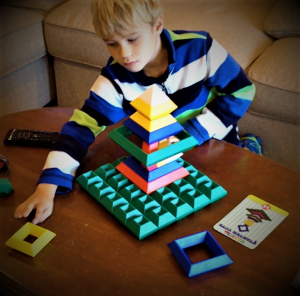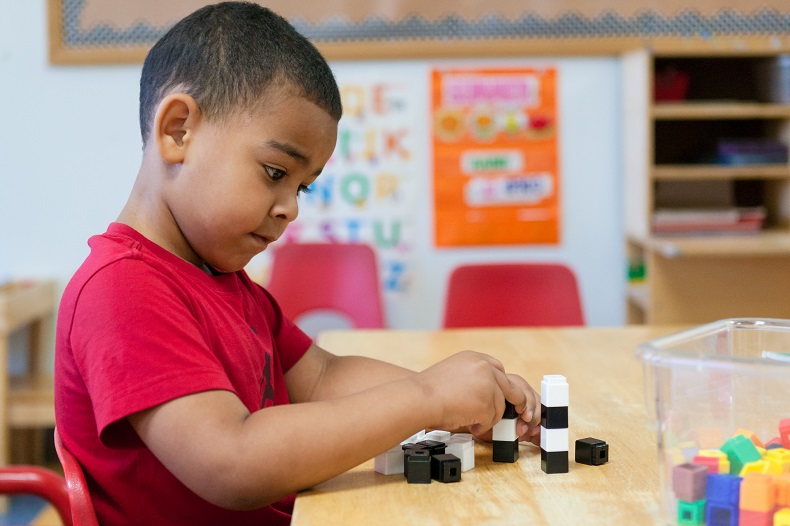In order to develop effective interventions aimed at improving mastery motivation—and to comprehensively evaluate the success of educational interventions—it is essential to validly and reliably measure its variation. Despite evidence that mastery motivation is malleable (Moorman and Pomerantz, 2008), it has not traditionally been emphasized in educational interventions, in part because of a lack of measures that are easy to administer and score, and are demonstrated to be reliable and valid (Zigler & Bishop-Josef, 2006).
 |
The Preschool Assessment of Mastery Motivation (PAMM)
was developed to address this need, based on Morgan et al.’s (1992) individualized assessment for children aged 0-3. As part of a larger study, this observational measure was refined and validated for use with children ages 3 to 5 from under-resourced communities. A key aspect in the measurement of mastery motivation is the provision of problem-posing tasks that are individualized to the child’s developmental level and are moderately challenging—i.e., persistence is toward a goal that has not yet been mastered. |
We know that mastery motivation can be different between children
and that it is malleable, so teachers can influence it! The Games for Young Mathematicians project is investigating the potential of a game-based math and mindset intervention to improve children’s mastery motivation and school readiness skills. We are also validating an observational measure of mastery motivation.
Read more:
Mastery Motivation: Persistence and Problem Solving in Preschool by Jessica Mercer Young and Kristen E. Reed in
Teaching Young Children October/November 2017 , Vol. 11, No. 1.




